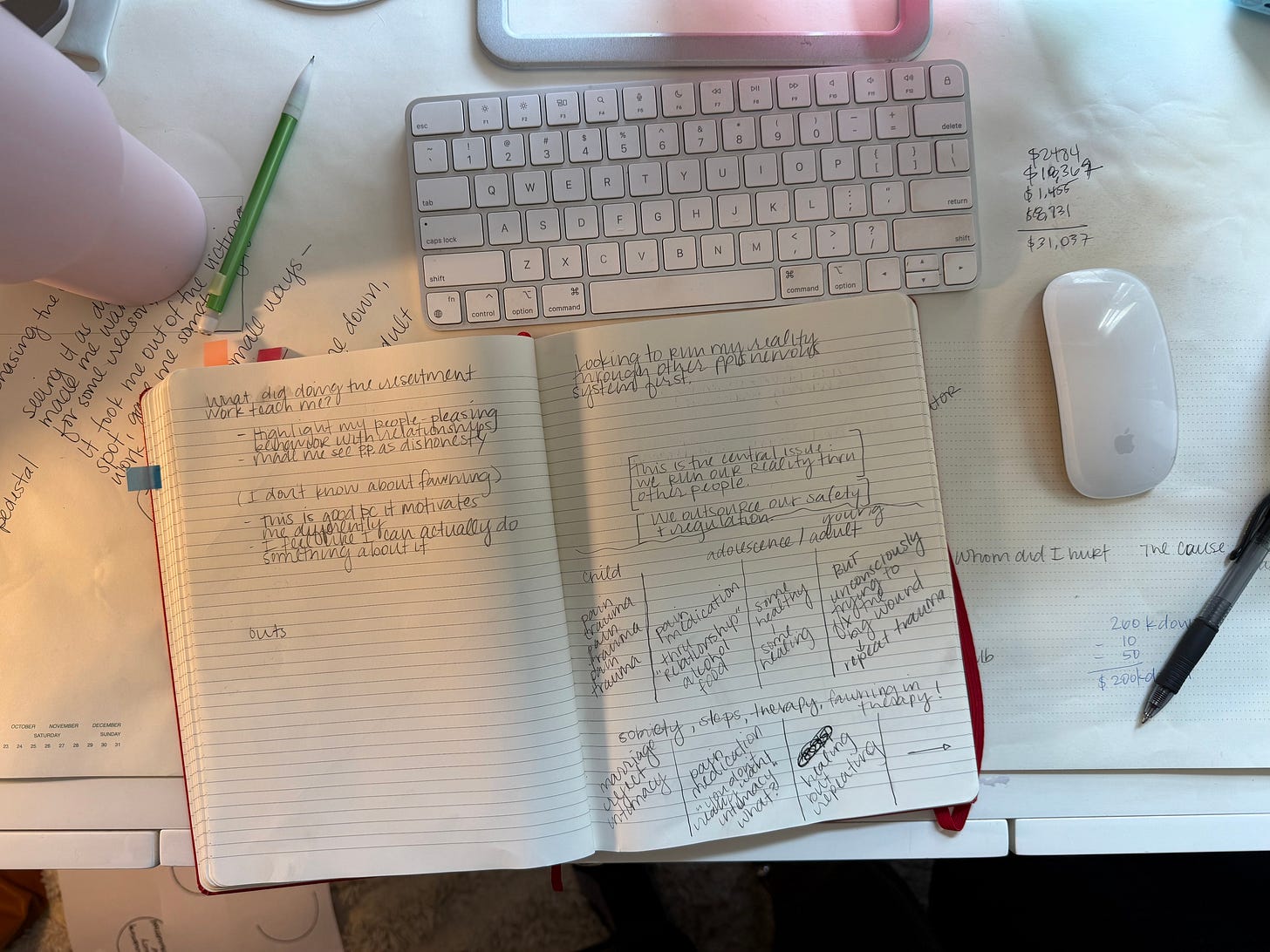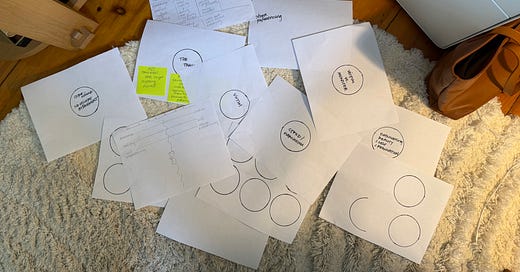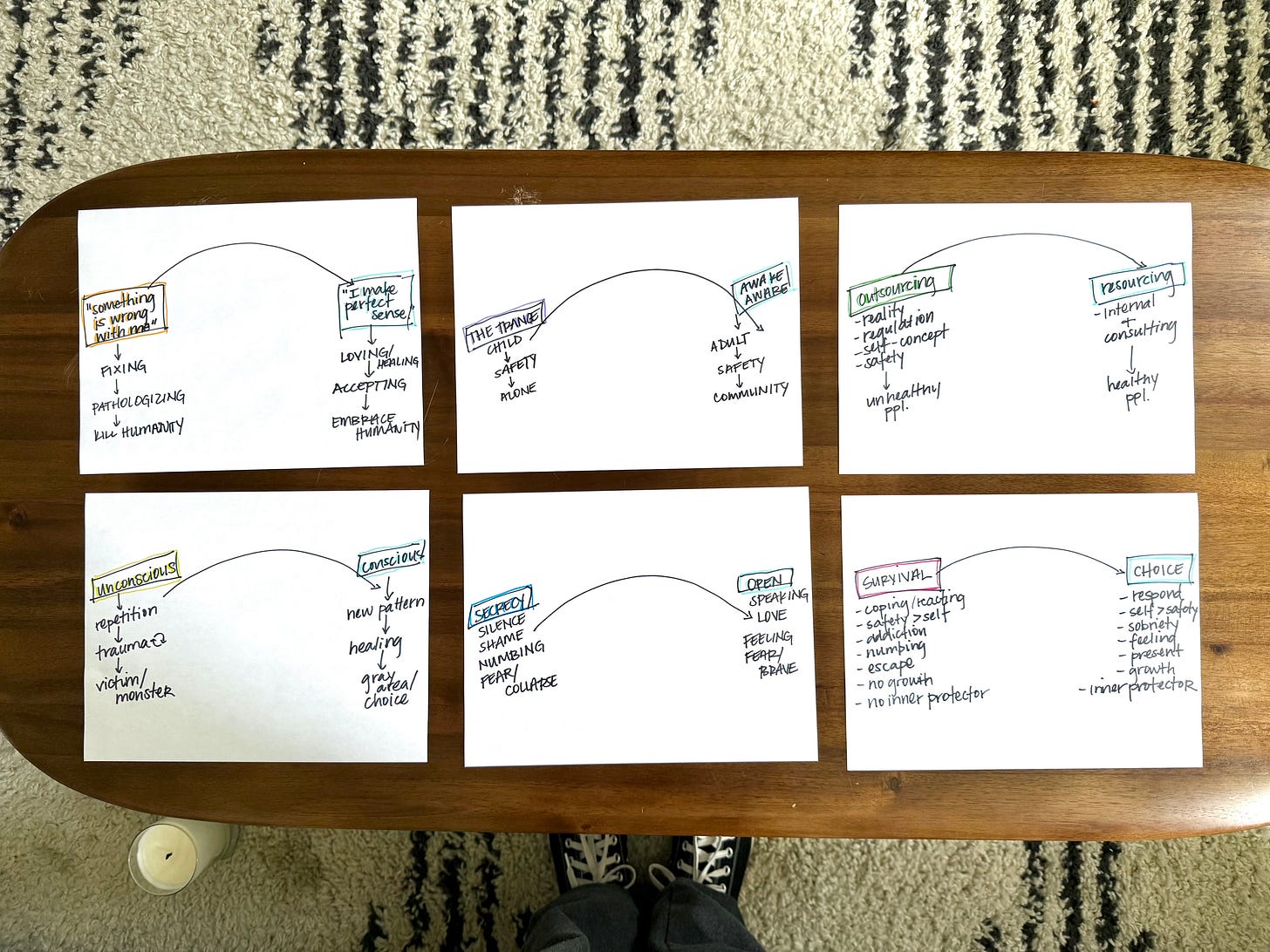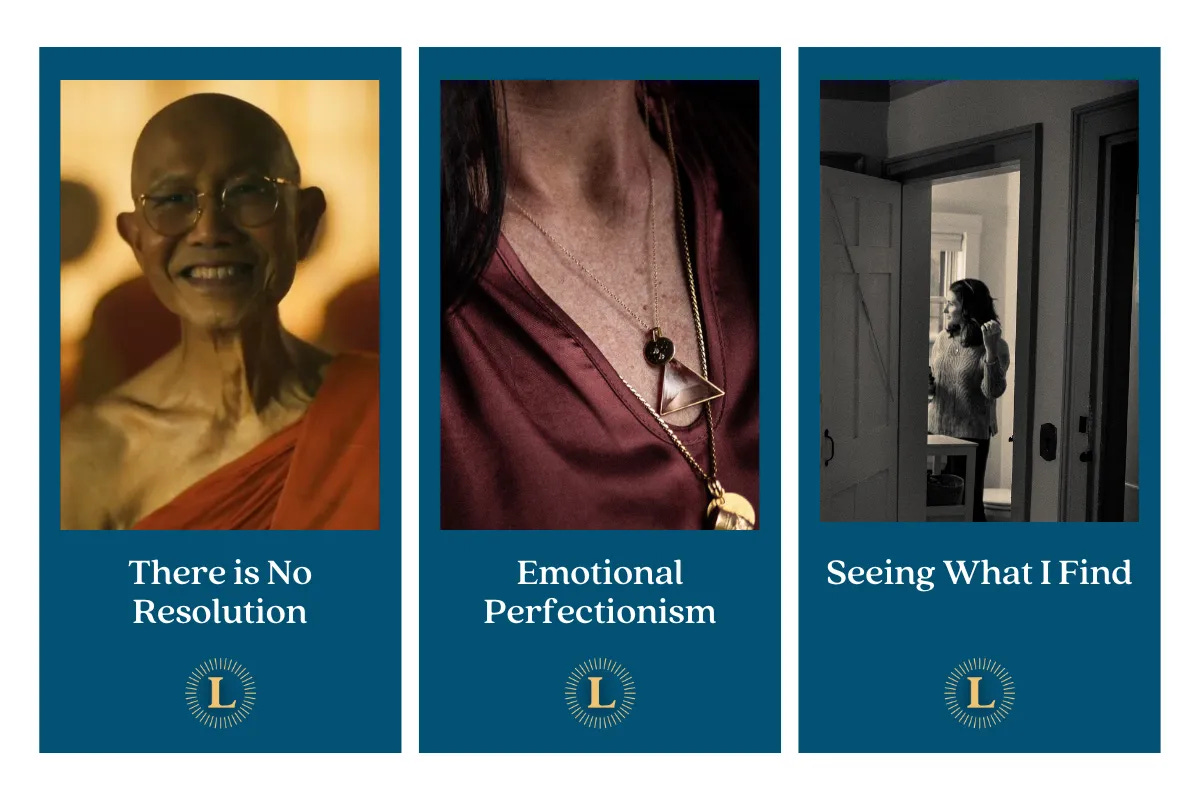Writing is the weirdest job, addiction is still hell, but there's good news, too.
The scary writing days (with photos), the upside of addiction, Dear Writer, and The Book of Alchemy!
Hi, hiii, hello.
Happy Tuesday? Yes, it’s Tuesday. April 22, 2025.
It’s 3:11 pm right now, I’ve spent this entire day working on my book, and I have about 400 fewer words to show for it than when I sat down at 7:19 am. These kinds of days are scary when they happen, and part of me deciding to write you now is to take contrary action: combat the fear by putting one word down after another to remember how it feels to do that.
But I also have several random bits of information and observations floating around that I’d like to share with you.
First, the scary non-writing writing days.
I said these kinds of days in book writing are scary, but they’re actually worse than that. I’ve been writing at a good clip for the past couple of weeks, finding the next thread to pull with relative ease, trusting myself enough to write poorly and just get it down, as they say. But I reached a point at the end of Sunday’s session where I seemed to have written my way into a dead end, or at least a cul-de-sac.
I’ve spent a lot of time Google-ChatGPT-ing how other authors write their books. Specifically, how other memoirists approach their story. Do most begin with just a basic idea, like Stephen King purportedly does with his fiction, and write their way into the story, letting it reveal itself as they go? Or are more people like Ann Patchett, who writes meticulously detailed outlines so that every chapter, beat, scene, and transition is mapped out from beginning to end, before she even lays down the first word?
Or are Stephen and Ann savant weirdos—outliers representing a population of less than one .01 percent? (Maybe. Probably.)
Nobody knows for sure, but the reality is—at least, I think—that most of us fall somewhere in the middle. The point of all that questioning, though, is to try and convince myself that I’m not as screwed as I feel. I’ve done similar existential creative doom-Googling with both of my other books, right up until I wrote the last word, and it actually does help to a degree, if only to remind yourself (again) that there are no proven formulas, experts, or answers.
Other searches include:
—Memoir structure?
—Linear timeline memoir that deals with multiple themes examples?
—Effective present tense memoir possible?
—What is Emily Witt’s memoir, Health and Safety, about?
—Is this chapter terrible? (Don’t ask ChatGPT that.)
So, yesterday, I didn’t write because my brain hurt, and then today, I started to write but didn’t know where to go next, because I couldn’t figure out how this thing I’d written about on Sunday for two thousand words—the evolution of a particular friendship—fit in with the book, if it did at all, because the book is about romantic relationships, and what did that have to do with my dad, and, and, and.
Plus, I started reading Ingrid Clayton’s forthcoming book, Fawning, last night, and it blew my brain open, and how was I going to fit that newfound language into it, or not?
This led me to do the zoom-out 30,000-foot thing with this book again, which I’ve done at least two dozen times now. I thought it might be interesting or helpful to show you a little glimpse of what one of these things looks like.

Between the second photo and the third, I walked for about four miles while talking to two friends, Kelly and Holly, who both helped me in different ways—mostly by letting me verbally process my thoughts out loud.
Will this mean I go back and start over? No way, I can’t at this point. But will shift things around, move/add/edit/delete what I have so far? Yes. Do I know how yet? No! Am I scared? Yes. Will I keep going? Yes.
(This is the weirdest fucking job and I don’t know if I love it or hate it.)
On a related note, Maggie Smith’s new craft book is excellent
I am listening to
’s new book, Dear Writer, and it’s the most wonderful companion-slash-cheerleader-slash-teacher right now. I’m lucky to know Maggie in person, and I still cannot believe what she was able to pull off with You Could Make This Place Beautiful, so if you haven’t read that yet—also grab it.Addiction is still hell, but recovery people rule
Last week, I received a call from an acquaintance whose family member is struggling with drinking. This is the third such call/text I’ve received in the last month.
Because I’ve lived and worked in this space for over ten years now, I can easily forget how absolutely foreign it is to most people, and I’m so glad I can be an entry point or source of comfort or resources, even if it’s not enough (it never is).
We spoke for about an hour, and when we hung up, I was surprised by what seemed to be most helpful thing for them to hear—perhaps, because it was the thing they imagined would be most helpful for their partner: that the best people I know are in recovery.
Their response was, “Really!” As in, you don’t say. As in, they were very surprised.
But it’s true. Easily true. And maybe you or someone you know needs to hear that today. I talk about this quite a bit in this conversation on We Can Do Hard Things from last year (Apple podcast, Spotify).
The Book of Alchemy is out today!
One of the cool things that happened in my pit of grief last year was that I was asked to write for
’s mega-big Substack, The Isolation Journals.Suleika is the NYT bestselling author of Between Two Kingdoms, and The Book of Alchemy is her second book. It’s a love letter to the art of journaling, featuring essays and writing prompts from over 100 artists and creatives organized by themes from new beginnings to love, loss, and rebuilding.
The essay I wrote for Isolation Journals was chosen for the book, and I am so honored to be included!
Lastly, I don’t have anything new or helpful to say about the state of the world right now, but I know I feel better when I repeat this.
Good things happen. Love is real. We will be okay.
Love,
Laura
In Case You Missed It
There is no resolution - Unlikely wisdom in a tough time, from The White Lotus (no spoilers).
Emotional Perfectionism - I didn’t even know it was a thing. And, hi, I’m back.
Seeing What I Find - Reflections on heartbreak, one year later.
Explore The Archives
Upcoming Events
Join me for a small group retreat at True Nature in Carbondale, Colorado, from September 25 to 28. Learn more.
Sobriety is hard. The Luckiest Club makes it easier. With 51 weekly meetings, 24/7 app support, a dogma-free community, and programs that help, you’ll get real support to stay sober and build a better life. Join now and get your first week of meetings free.
You are reading Love Story, a weekly newsletter about relationships, recovery, and writing from Laura McKowen. Laura is the founder of The Luckiest Club, an international sobriety support community, and the bestselling author of two books, We Are The Luckiest: The Surprising Magic of a Sober Life and Push Off from Here: 9 Essential Truths to Get You Through Sobriety (and Everything Else).









Hi Laura. I have never written a response on a blog or Substack. I rarely comment on social media and I wrote my first Google review last week because my friend asked me to. But I am writing here because it feels important to say ... I can't imagine how hard it is to write a book. But I just wanted to remind you how important and how beautiful it is the work that you are doing. You almost single-handedly changed the entire course of my life with "We are the Luckiest." I am also a marketing executive in my 40's, went through a divorce and have spent most of my adulthood struggling with addiction. I am sober now and the work you are struggling through always feels like a light to me. So thank you, and please ... keep writing. I hope this gives you some inspiration to keep going because the world needs your words and your beautiful perspective. And so do I.
Recently I told my son, almost two years sober, that recovery also runs in families. Mine has some of the very best people, all imperfectly perfect. I hope your friend and her partner find their way. I root for them.